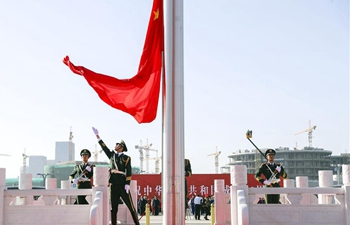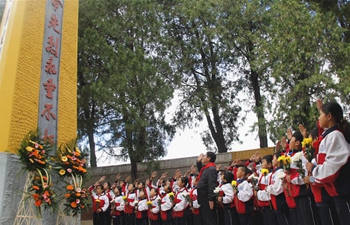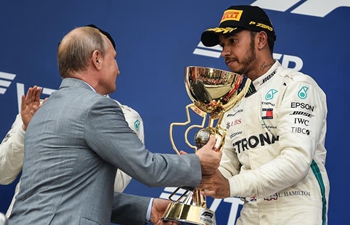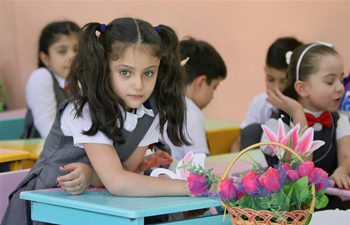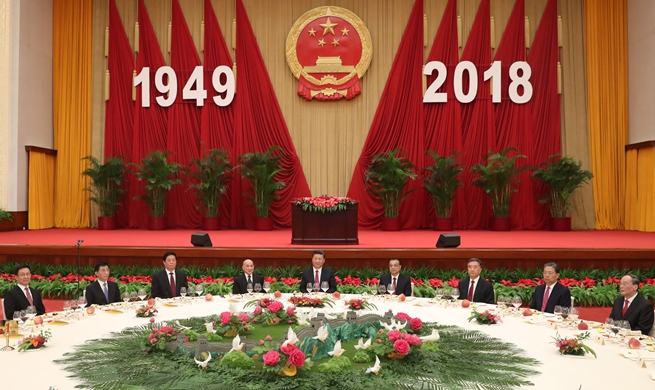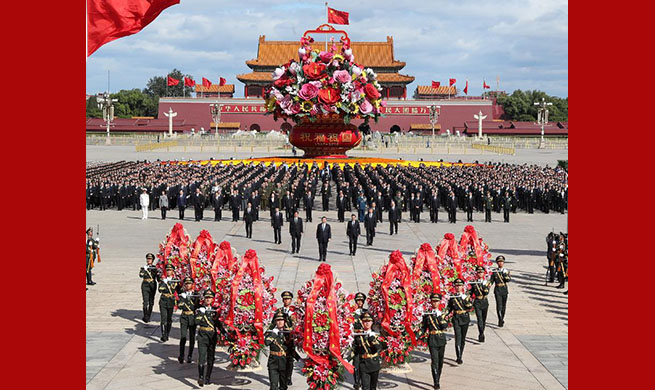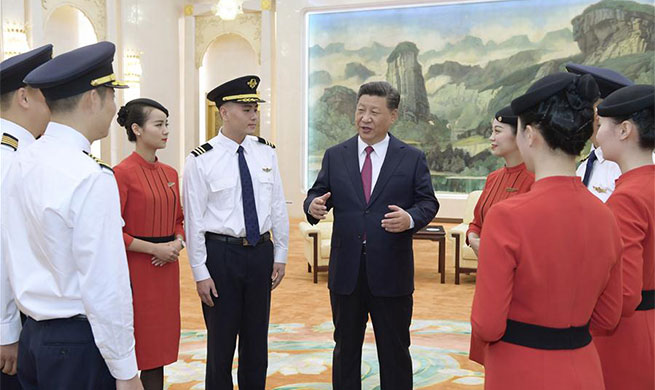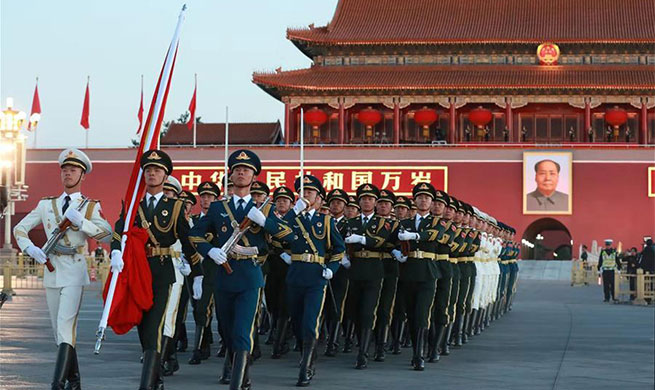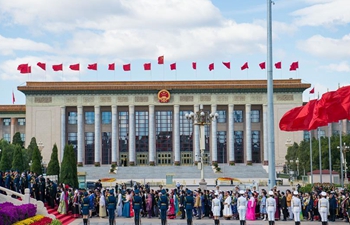BERLIN, Oct. 1 (Xinhua) -- German arms exports to Saudi Arabia have risen significantly again in spite of a pledge by the ruling "grand coalition" not to deliver weapons to countries involved in the ongoing Yemen war, the German press agency (dpa) reported Monday citing official figures.
Citing an official response by the ministry for the economy to a Green party (Gruene) parliamentary enquiry (Gruene), the report said a total of 254 million euros (294.8 million U.S. dollars) worth of arms sales to Saudi Arabia have been approved since the "grand coalition" was inaugurated in March. As a consequence, military exports to Riyadh by October this year are already close to the level of 254.5 million euros recorded throughout the entirety of 2017.
Back in May, the ministry for the economy had published figures pointing to a steep decline in arms exports to Saudi Arabia during the first month since chancellor Angela Merkel (CDU) formed her fourth governing cabinet. At the time, the development was seen as a tangible result of an insistence on behalf of the German Social Democrats (SPD) to enshrine an arms embargo against countries involved in the Yemen war in the "grand coalition" agreement.
Amongst others, the official ban in place affects countries such as Egypt (708.3 million euros), Saudi-Arabia (254.5 million euros) and the United Arab Emirates (213.9 million euros) which were still among the largest international customers of the German defense sector in 2017. As showcased by the latest figures, however, arms manufacturers in Germany have succeeded in using a loophole in the embargo legislation which allows them to continue to export to these countries on the basis of the previously-granted preliminary approval of the government.
Saudi Arabia has repeatedly been criticized by the United Nations (UN), as well as German politicians, for its military intervention in neighboring Yemen. The as yet unresolved conflict is considered by the UN to be the currently worst humanitarian catastrophe in the world, with 7 million inhabitants suffering from malnutrition.
Commenting on the latest official figures, Greens delegate Omid Nouripour, the politician who filed original parliamentary enquiry, criticized the federal government in Berlin sharply for failing to effectively halt arms exports to Saudi Arabia. He argued that the gap between the grand coalition's rhetoric and action demonstrated that it was "morally bankrupt."
Although arms flowed between the two country seemingly unperturbed throughout the period, the Yemen war has caused some visible strain to official relations between Berlin and Riyadh. German Foreign minister Heiko Maas (SPD) only announced as recently as last week that the Saudi ambassador to Germany would finally return to his post in October after his predecessor Sigmar Gabriel (SPD)'s remarks condemning "adventurism" in the Middle East led Riyadh to recall its diplomat in November 2017.


